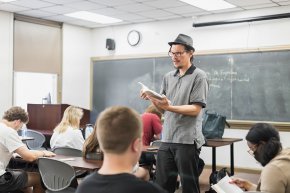
Faculty research wins funding from Appalachian College Association
Four Lenoir-Rhyne professors have been named recipients of Faculty Fellowships from the Appalachian College Association (ACA) for the 2023-24 academic year. The grants total almost $40,000 and support a wide range of research projects in mathematics, sciences and humanities.

“The dedication, expertise and commitment of our faculty members to the teacher-scholar model at Lenoir-Rhyne is demonstrated by the fact that all four applicants from Lenoir-Rhyne received recognition and funding from the ACA,” commented Jennifer Burris, Ph.D., provost and vice-president for academic affairs. “These professors’ scholarly achievements provide a model and support for student excellence, and we celebrate their accomplishments.”
Recreational mathematics
Behind the recreational aspect of most games and puzzles are sets of patterns and concepts that correspond to mathematical principles – and those same games and puzzles can be used to explore those principles. These deep ideas and patterns form the basis for the field of recreational mathematics and the research focus for Timothy Goldberg, Ph.D., mathematics professor and program coordinator and math and computer science tutoring liaison.
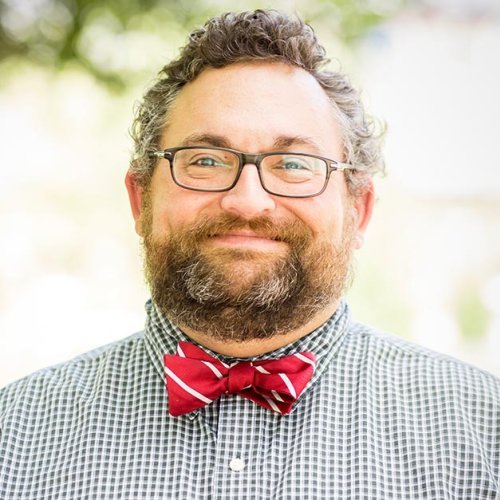
“For example, a card game such as Set or Quads can connect with and illustrate principles of geometry,” said Goldberg. “One way of looking at geometry is that you have certain objects – points, lines, planes, and so on. In Set, players assemble sets of cards, and those sets correspond with those geometric objects and generate patterns.”
Because it connects deeper mathematical concepts with something accessible and familiar like a card game, recreational math is a useful tool for teaching those concepts to learners at all levels of expertise as well as providing a vehicle for developing research.
“You start out playing around with something like a game that has defined rules, looking for patterns. Once you find a pattern that seems to be true, you try to prove it and connect it with other patterns,” said Goldberg. “This is how math research gets started a lot of the time.”
The ACA grant will allow Goldberg to spend a full semester in spring 2025 focused on research into Set and Quads with a colleague at Bard College and collaborate on a recreational math textbook with a colleague at Berry College.
Shaun Williams, Ph.D., dean of the College of Natural Sciences and Mathematics congratulated Goldberg and emphasized the connection between Goldberg’s research and instructional approach.
“Dr. Goldberg has always been dedicated to developing excitement about mathematics in his students,” said Williams. “His further development of recreational math will give his students more exciting examples and experiences and will show them how math is all around us.”
Chinese diaspora in the United States and Western Europe
Since the Chinese Communist Revolution in 1949, multiple waves of migrants escaping persecution have built communities throughout North America and Western Europe.
“There was a wave of immigration after 1949, of course. Then there was a second wave during the purges of the Cultural Revolution in the 1960s,” explained Marisa Hsu, Ph.D., professor of history and Chinese language. “Another wave happened after the Tiananmen Square protests in 1989 and another in 1999, in response to government suppression of religion, specifically Falun Dafa, a spiritual practice rooted in Buddhist traditions.”
While these communities have put down roots and grown worldwide, younger generations more removed from their parents’ and grandparents’ struggles may be more susceptible to propaganda from the Chinese Communist Party. Hsu plans to use the ACA grant to visit those communities in the United States and abroad for field research.
“I’m looking at histories, demographics and the level of influence the Chinese Communist Party still has within those communities – from New York City to rural North Carolina,” Hsu shared. “I’m honored by the ACA and their support for this research, the voices of the members of these communities and our shared human values.”
Indigenous voices in philosophy and religion
The United Nations estimates there are more than 476 million people who identify as members of more than 5,000 distinct Indigenous groups living in 90 countries worldwide, on every continent except Antarctica. However, documentation sharing these cultures’ histories, philosophies and traditions remains thin in academia. Michael Deckard, Ph.D., professor and program coordinator for philosophy, hopes his research will bring more Indigenous and native voices forward.
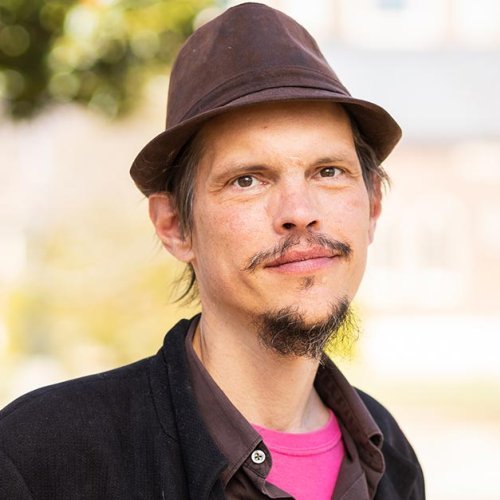
“If one reads a history of philosophy or religion – even in surveys of world religions – often what is excluded is any mention of native or Indigenous peoples,” he explained. “Most Indigenous populations around the world have been decimated or marginalized, so it’s important to retain and share their stories.”
Focusing on native narratives from North America, the ACA fellowship will allow Deckard to spend a summer immersed in research toward contributing chapters to a textbook exploring narrative identity as part of personhood and nationhood in the United States and elsewhere.
“These narratives are embedded in who we are in the United States. Even the word Appalachian is derived from the Apalachee people, a tribe that originated in Florida,” Deckard shared. “We’re at a ripe time in the history of this country that this kind of recognition and research is necessary and encouraged. It’s a narrative of justice, not blame, to include these voices.”
Economic development in Hickory, North Carolina
Over several decades, the hometown of Lenoir-Rhyne has seen a series of changes, from the prosperity of a robust manufacturing economy to a decline as those jobs moved from the area to a recovery based in technology, tourism and service.
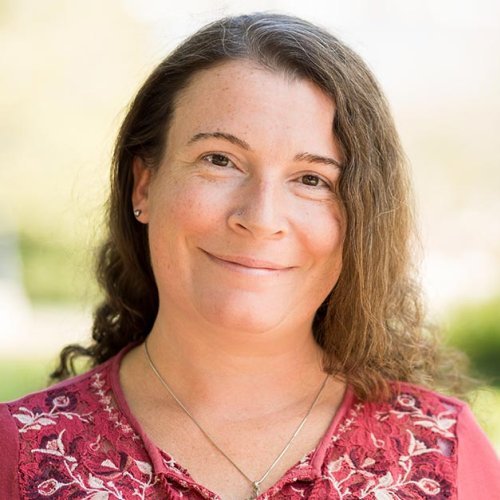
For Katherine Gerlaugh, Ph.D., a sociology professor specializing in political economy with a focus on uneven development and local economies in Appalachia, Hickory is an ideal location for her studies.
“From this project, I want to get a clear snapshot of the current culture of Hickory, how it has changed over time and been affected by changes in politics and the local economy,” Gerlaugh explained.
She has conducted similar work in other communities throughout the Appalachian region and believes this work is essential to overcoming negative stereotypes that still dominate public perception.
“There remains a lot of misunderstanding and lack of appreciation for Appalachia’s unique contributions to American culture and economics,” Gerlaugh commented. “To have an organization like the ACA facilitate the academic work to bring attention to those contributions is so important.”
The three recipients from the College of Humanities and Social Sciences drew praise from Amy Hedrick, Ph.D., dean of the college and professor of psychology.
“Our vision in the College of Humanities and Social Sciences is to be a reputable, distinctive home for scholarly and vocational transformation for service in the world,” she commented. “Our faculty are deeply committed to scholarship, and Drs. Hsu, Deckard and Gerlaugh have each developed important research projects that benefit our campus and broader communities.”
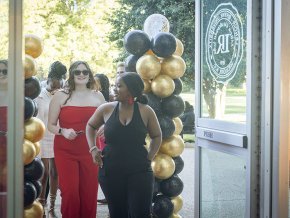
The revamped 2024 Student Life Awards gave students "A Night to Remember" with recognition and celebration of the joys of being a Bear.
View More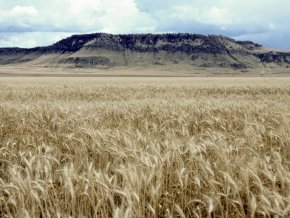
Susan McArver, Ph.D., took a deep dive into the role of the church behind the history of colonization and domination over Indigenous peoples in the Americas during her fall Explore Course, “The Land and its Inhabitants.”
View More